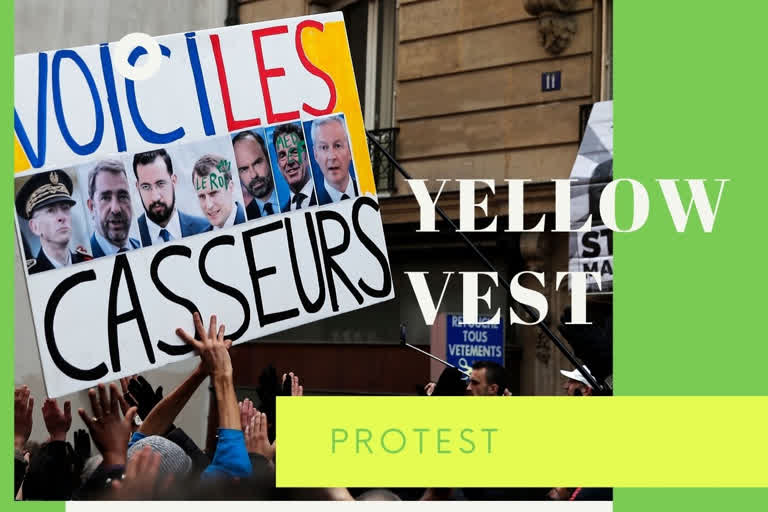Paris: Police skirmished Saturday with yellow vest activists who joined a wave of protests against the government's overhaul of France's retirement system, as highway blockades and train stoppages by other protesters disrupted weekend travel around the country.
A few thousand yellow vest protesters marched from the Finance Ministry complex on the Seine River through southeast Paris, pushing their year-old demands for economic fairness and adding the retirement reform to their list of grievances. Most marchers were peaceful but some threw projectiles or pushed riot officers, prompting repeated bursts of tear gas from police.
The marchers appear to be emboldened by the biggest national demonstrations in years Thursday that kicked off a mass strike-and-protest movement against President Emmanuel Macron's redesign of the pension system.
As the strikes entered a third day Saturday, tourists and shoppers faced shuttered subway lines around Paris and near-empty train stations.
Truckers striking over a fuel tax hike disrupted traffic on highways from Provence in the southeast to Normandy in the northwest. A similar fuel tax is what unleashed the yellow vest movement a year ago, and this convergence of grievances could pose a major new threat to Macron's presidency.
Read more:'Yellow vests' protest in Paris for 21st weekend
Macron says the reform, which will streamline a convoluted system of 42 special pension plans, will make the national pension system more fair and financially sustainable. The government says it won't raise the official retirement age of 62 but the plan is expected to including financial conditions to encourage people to work longer. Those most against the changes are workers in special categories like transport who can now retire earlier than 62.
So far the travel chaos is not deterring the government. Prime Minister Edouard Philippe told the French in a nationwide address Friday: “You're going to have to work longer.”
He will present details of the plan next week. Philippe did offer one olive branch, saying the changes would be progressive so that they don't become “brutal.”
